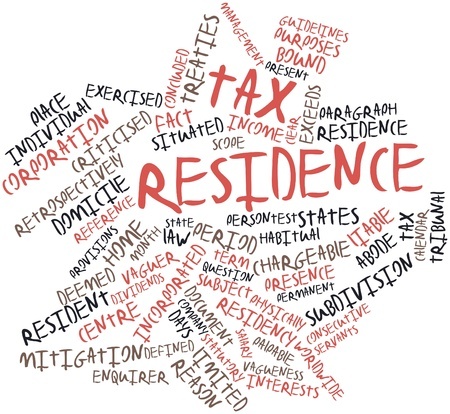What has changed in the fiscal partner field and cross border relationships?
Main rule fiscal residency
The basic rule is that you are a tax resident in the country where you are residing. However, if you are married and your wife and children are still living abroad you were till the end of 2014 (under Dutch tax law) a tax resident in the country where your family was residing. The reason for this is that a tax residency is based on your central point of life. Your family (partner and if applicable children) is regarded your central point of life, hence you are a tax resident in the country where your family is residing. This implies that when you are single you are a tax resident of the country where you have your residence.

Change as per January 1, 2015.
As per January 1 2015 you can no longer be regarded a tax partner if your partner is living abroad. This is rather inconvenient, especially when you own with your partner a house that is your residence in the Netherlands.
(a rather traditional) Example
2014 and earlier
Husband works full time in Germany, wife lives and works in the Netherlands. You purchased a house together in the Netherlands being your main residence and you deduct the mortgage interest. The husband his income is subject to Germany tax. This German income is also part of the Dutch tax return as he has his fiscal residency in the Netherlands. Global income needs to be reported, however, based on the Dutch German tax treaty a double taxation relief is provided, hence no Dutch tax to be paid by the husband.
Wife works in the Netherlands, pays therefore Dutch income tax, hence the couple decides that all the mortgage interest will be deducted from her income. And the tax refund is being received.
After January 1 2015.
Husband works full time in Germany, wife lives and works in the Netherlands. You purchased a house together in the Netherlands. The house is no longer your main residence, as you cannot be regarded a tax partner with your wife as you are living and working abroad.
This implies you cannot switch between each other the mortgage interest. The wife can only deduct the mortgage interest for the part of the house that she owns and the other part becomes Box 3 asset. In Box 3 you cannot deduct the mortgage interest.
This has a significant impact on the financial position of the couple, as now only half the refund is being received.
Exception to the rule: the new compulsory non resident tax payer status
The exception to the rule that two persons living in two countries of which one is the Netherlands cannot be regarded fiscal tax partners, is the new compulsory non resident tax payer status.
If you earn at least 90% of your income in the Netherland while you are residing somewhere else in the EU, then you are regarded a compulsory non resident tax payer.
In that case you can be fiscal partners with a person living in the Netherlands.
But frankly, how twisted is your life? Your partner lives in the Netherlands, you live abroad and you earn nearly all your income in the Netherlands. What is then the point of living abroad?
Orange Tax Services team
The Orange Tax Services team works with cross border situations on a daily basis. One of our first investigations will be where someone is being a tax resident. This can be rather crucial in the tax planning of a client. Once the fiscal residency has been determined we can continue discussing with you about the Dutch tax aspects.





